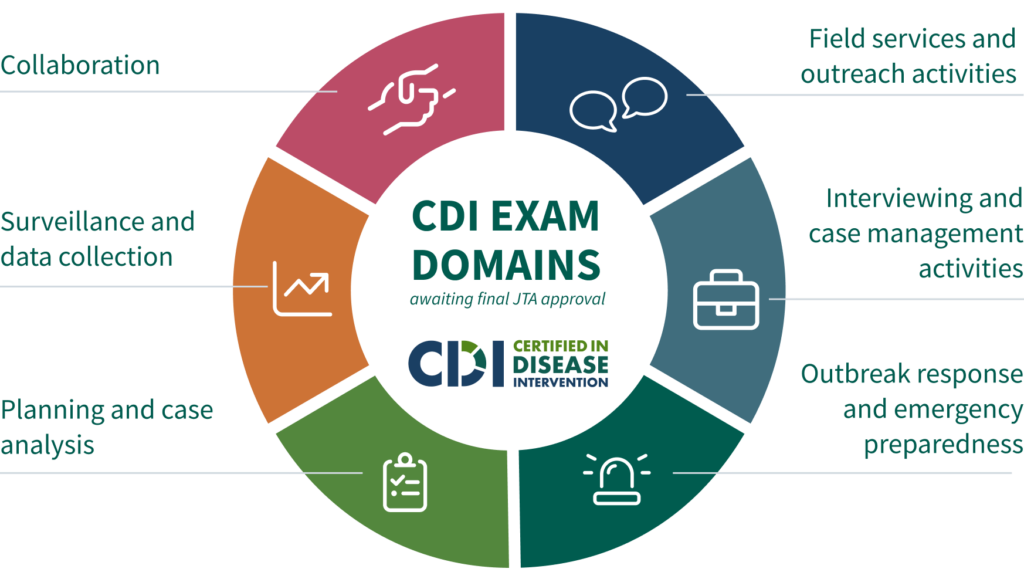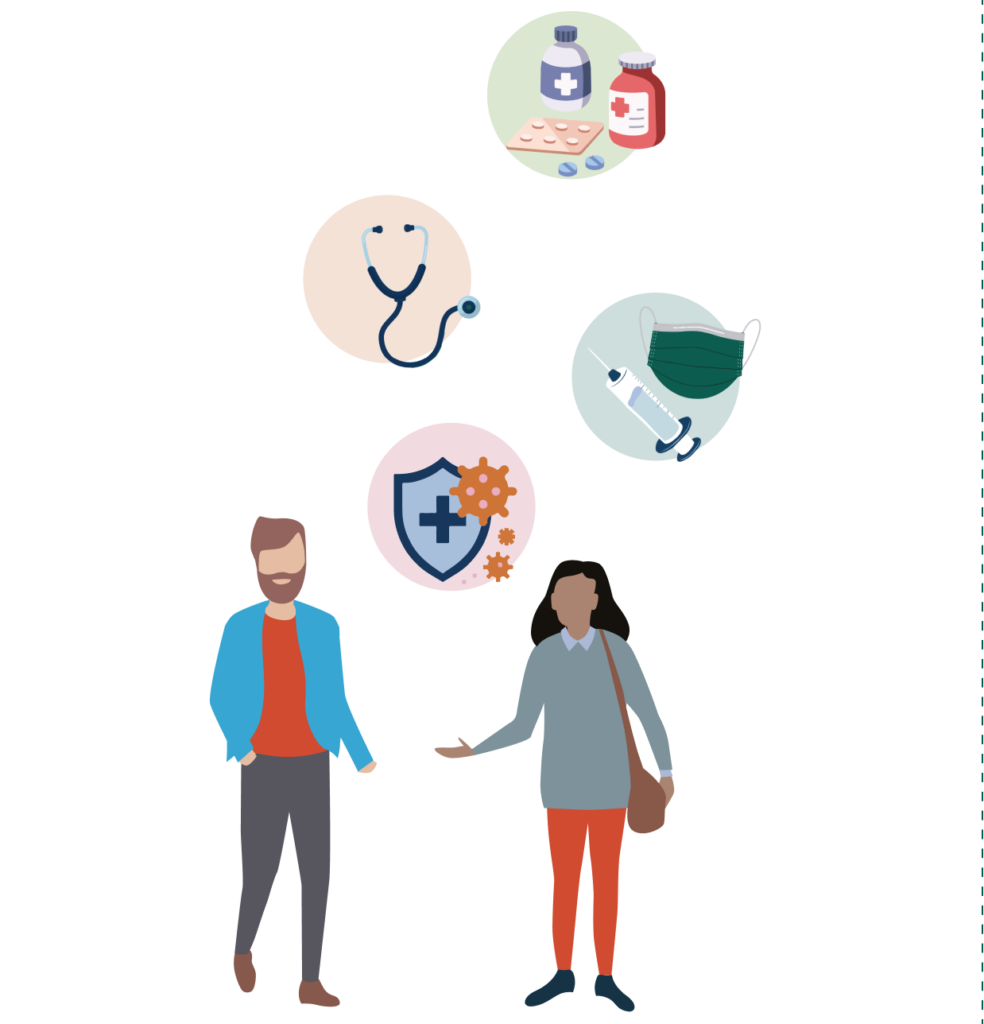
WORKING IN DI
Disease Intervention professionals are on the frontlines of public health, skilled in their ability to help stop the spread of infectious diseases within communities.
Disease Intervention
Disease Intervention professionals provide a range of services to ensure that everyone has access to testing, treatment, and prevention resources. The daily work of disease intervention professionals includes case investigation, contact tracing, and partner services to support people diagnosed with or possibly exposed to infectious diseases.


Working with People Diagnosed with an Infectious Disease
When someone tests positive for a communicable disease, disease intervention professionals may follow up to provide education and linkages to health care, such as reproductive health care, prenatal care, vaccinations, treatment programs for substance use, and mental health counseling. Disease intervention professionals can also link people to community-based resources such as housing assistance, legal aid, and food pantries.
Disease intervention professionals may also conduct interviews to help determine if anyone else may have been exposed to a disease. These are sometimes referred to as “Partner Services”. Disease intervention professionals are required to protect individual privacy by keeping all information provided during interviews completely confidential.
PARTNER SERVICES
Partner services are intended to support people who may have been exposed to communicable diseases. Disease intervention professionals sometimes provide partner notification, where a person is informed about a possible exposure to a communicable disease, such as a sexually transmitted infection (STI). The potentially exposed person is provided with education, prevention counseling, testing, screening, vaccinations, and assistance with finding health care and community-based resources. A disease intervention professional may also conduct a confidential interview with partners to help identify and support more people who may have been exposed.